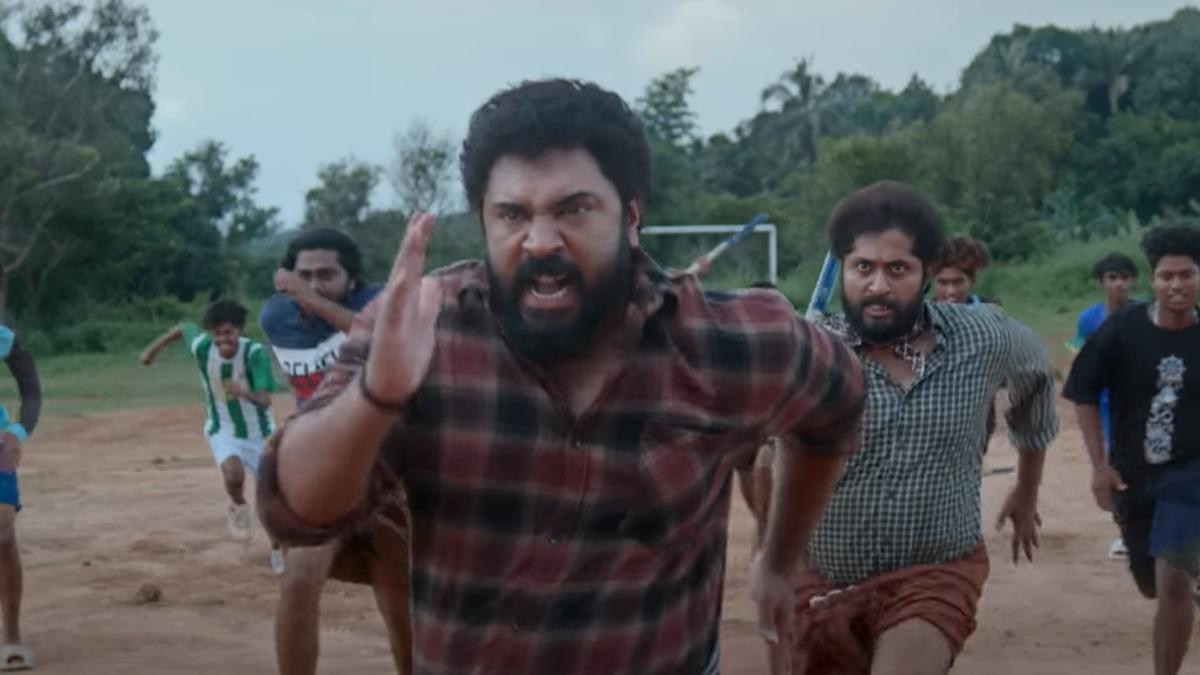
‘Malayalee from India’ movie review: Subtlety in short supply in this satire on communal politics
The Hindu
Other than the strength of its politics and Nivin Pauly’s screen presence, there is not much that can hold this film together convincingly
Our reactions to a film often depend on everything from our life experiences to the social and political atmosphere around us and even on our mood on the specific day. At a time when hate speech fills the air with worrying regularity, the progressive-minded might welcome a film which seeks to target such overt and covert attempts at communal polarisation and uphold a message of amity, even if it is lacking in other departments.
Filmmaker Dijo Jose Antony and screenwriter Sharis Mohammed appear to have been driven by this thought while making Malayalee from India, their third outing together. For, other than the strength of the politics that they attempt to convey and Nivin Pauly’s screen presence, there is not much that can hold this film together convincingly.
Even the politics, at times, is conveyed in a manner that betrays an eagerness to draw some easy applause rather than genuine conviction. One can almost sense the force fitting of various scenarios into the narrative to make some political points. Nuance and depth are in short supply, in the writing of the characters as well as in how the situations play out. Yet, the fact that it takes potshots at the religious extremists of all hues is commendable, although there is a bit of evident struggle in maintaining the delicate balance.
Alparambil Gopi is a character tailor-made for Nivin Pauly, reminiscent of the loafer roles he essayed in films like ‘Oru Vadakkan Selfie’. The one extra trait here he gets here is his affinity towards right-wing communal politics. With his close friend Malghosh (Dhyan Sreenivasan), who drags him into one problem after another, he does enough to shatter the peaceful atmosphere in his village. The film, predictably, plays out as a chronicle of the evolution of this character, when he interacts closely with the ones he hates blindly.
Dijo’s heavy-handed approach, marked by heightened and forced drama as well as stilted dialogues, with an attempt to convey everything in words, gets repeated here, just like it was in ‘Jana Gana Mana’. Some of the humour does work, but quite a lot of it does not. One can see a compulsion to pack in a lot of contemporary happenings into the narrative. At one point, the film transforms into Aadujeevitham, with the protagonist ending up in situations similar to that film. Later, a Malala-like character also pops up.
Female characters do not get their due in yet another Malayalam film. Only Manju Pillai, as Gopi’s mother, gets a few scenes to perform. Anaswara Rajan has only a cameo role stretching a few minutes.
Despite its intentions and clear stand against communal politics, Malayalee from India ends up only as an average fare due to its overtly preachy character and forced nature of its narrative. Some subtlety and an organic narrative could have gone a long way into turning this into a much more relevant film than it is now.

The girl, who was admitted to Aster CMI Hospital with alarming breathlessness and significant pallor, was diagnosed with Wegener’s Granulomatosis (now known as Granulomatosis with Polyangiitis or GPA), a rare autoimmune condition that causes spontaneous bleeding in the lungs, leading to acute respiratory failure.

ACB files case against IPS officer N. Sanjay in Andhra Pradesh. The official is accused of manipulating the tender processes for awarding contract for development and maintenance of AGNI-NOC portal, and conducting awareness meetings for SC/STs. It is alleged that the total value of properties stolen, or involved in the case is estimated at ₹1,75,86,600.









